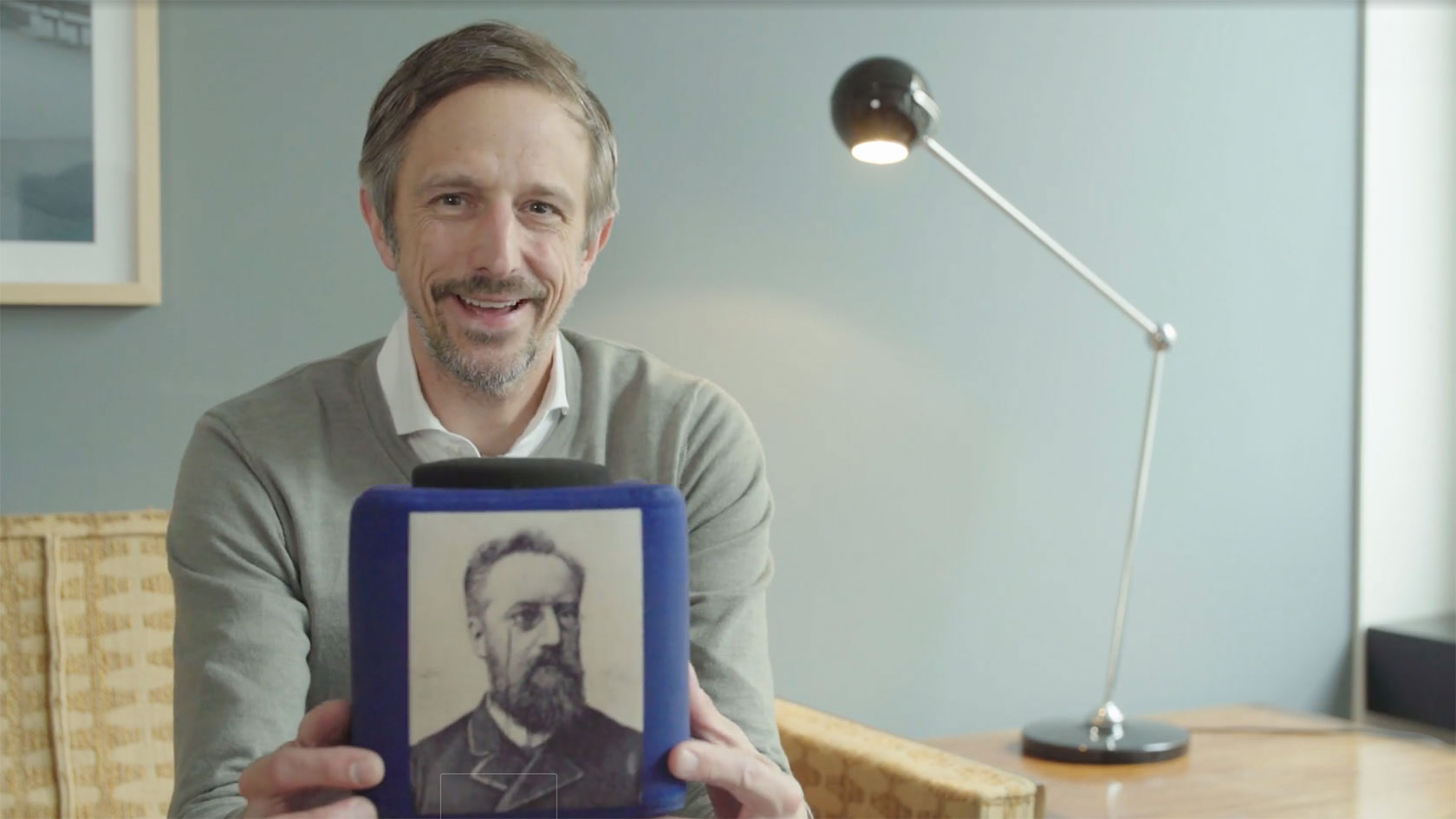Flying High with Carl
Every year, Marc Thommen teaches Swiss criminal law to up to 400 students. Given the sheer number of students and the large lecture hall setting, you might assume the UZH professor conveys the complex legal concepts by delivering long monologues. But you would be mistaken. “I want to disprove the notion that communicating with a large number of students isn’t possible,” says the professor of Swiss criminal and criminal procedure.
And he is clearly on to something. Thommen’s communicative lecture style is very popular among students and has won him the teaching award for 2024. Students lauded the professor’s highly interactive approach to teaching as well as his ability to get them involved and create a conducive learning environment.
Culture of openness
For Marc Thommen, interaction isn’t merely an end in itself but has genuine benefits. This is something he wants his students to know right from the first lecture. “If you’re actively involved, you’ll learn more,” he tells them. The legal scholar often gets his students to work together and discuss legal issues or specific cases in buzz groups. Working in these small groups reduces students’ reluctance to speak up during lectures and fosters a culture of openness.
“By speaking with the students sitting next to them, they gain more certainty as to whether or not their ideas are completely off the mark. Afterwards, they’re much more likely to share their thoughts with the whole group than if I had put the question to the entire lecture hall,” the UZH professor explains. Other examples of the benefits of interactive teaching include the game-based learning platform Kahoot, which Thommen regularly uses for online quizzes that allow students to check their learning progress, as well as a Student of the Month award that provides students with extra learning motivation.
Video portrait of law professor Marc Thommen on his award of the Teaching Prize 2024.
As equals
Besides small group discussions, the legal scholar also embraces creative teaching tools to foster interaction in the lecture hall. One of these is a catchbox named Carl – a throwable cube-shaped microphone that Thommen can toss to his students to increase their involvement and participation. The name is a nod to Carl Stooss, the founding father of Swiss criminal law.
Of course, Marc Thommen respects if a student wishes not to contribute. “I never pressure anyone, but I encourage them to participate.” The questions he asks rarely focus on knowledge; instead, he asks students to share their opinions or assessments, which offers a more intuitive way of dealing with an issue. This approach is particularly popular among his students. “Professor Thommen doesn’t make you afraid to participate. He listens to every answer respectfully and on an equal level,” one of his students says.
Encouraging students to think
Marc Thommen’s lecture also includes a podcast that adds another interactive element to his course. “I make it clear to students that the podcast is particularly valuable when it includes genuine dialogue – that is, not only my own views but also those of students. This motivates students to get involved,” says the legal expert. The podcast is also of great benefit for students who can’t attend the lectures in person. They are encouraged to think about how they would have acted in the situations being discussed, which can be inspiring and instructive. “This achieves a key didactic goal: to encourage students to think.”

If you’re actively involved, you’ll learn more.
Methods, analyses, rhetoric
Marc Thommen wants to empower his students in adopting a structured approach to dealing with legal issues. He wants them to carefully consider the facts when solving cases and avoid jumping to conclusions. New students in particular tend to describe court decisions rather than critically reflect on them, he adds. Thommen’s goal, however, is for students to go deeper: “My focus is on thought processes, on recognizing relevant crimes and potential justifications.”
This approach not only aims to promote students’ analytical skills but also encourages them to form their own opinions. Something that Thommen particularly enjoys is when students actively engage in thought experiments. “When they start asking me critical questions about current cases in the media, that’s when I know that the spark has been lit.”
Marc Thommen emphasizes that, in addition to critical thinking skills, legal experts also need to have rhetorical skills. “Legal work isn’t done in silence. The ability to make a compelling case is fundamental.” Thommen makes a point of getting his students to discuss current legal cases and practice these key skills.
Enriching current cases
Criminal law lends itself to dealing with issues that may play a role in the daily lives of people – be they anti-Semitic attacks or cases of fraud. “Students bring their own perspectives, which in turn enriches our discussions,” the award-winner says. This methodical approach boosts students’ motivation but also makes it easier for them to grasp new concepts.
However, including real-life and current cases in teaching materials comes at a price. “My team and I invest a lot of time in our teaching.” This is why being awarded the 2024 teaching award for his efforts is all the sweeter. “The teaching award is not only validation of my work but also an incentive to continue on this path.”
